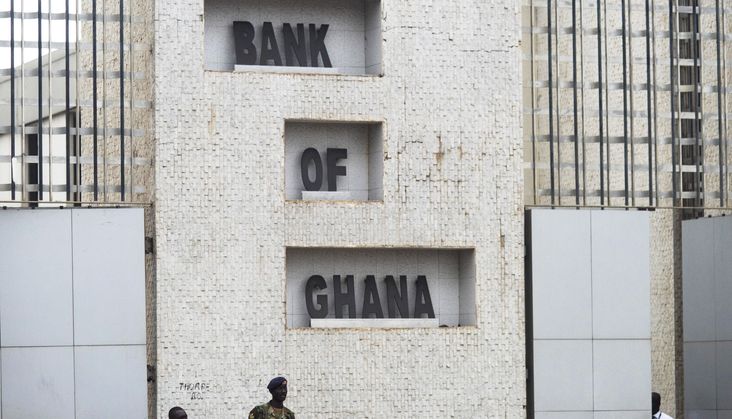Government and the Bank of Ghana have been urged to immediately design and implement a framework to assist local banks with funding.
Banking consultants Dr Richmond Atuahene and K. B. Frimpong hold the view that the Domestic Debt Exchange Programme has affected the banks.
They explained in a report that the banks hold GH₵50.6 billion of the total GH₵137.3 billion debt that was the target of the restructuring. These government securities that the banks hold form a large part of their assets.
They noted that by merely participating in the programme, significant changes have occurred in the balance sheets of the banks.
“Due to a combination of coupon or interest rate reduction, and maturity extension with below-market coupon rates of 19.3%, the capacity of the banking sector to absorb losses had been lower, as the banking sector capitalisation only took place three years ago.
"When banks are able to absorb losses without having to resort to a recapitalisation from the government, the fiscal consolidation and/or burden-sharing by other creditors required to restore debt sustainability would be smaller,” portions of the report stated.
At least nine banks have been identified by banking experts as being on the verge of insolvency as the domestic debt restructuring programme is said to have wiped off the value of the bank’s assets leaving them quite fragile.
Local banks participated in the programme geared at making Ghana’s debts sustainable but it appears its success may have lasting negative effects on the financial sector.
The Banking consultants recommended for the Bank of Ghana to identify gaps in crisis management and that bank resolution frameworks should be identified prior to the domestic debt exchange programme.
“Gaps in early intervention, resolution, deposit insurance, and central bank liquidity assistance for which Bank of Ghana in the process of establishing Financial Stability Support Fund as well as the coordination arrangements among these elements should be addressed before the Domestic Debt Restructuring.”
They added that “standard financial safety net components need to be supported by adequate contingency planning for each stage.”
Latest Stories
-
National Cathedral: CHRAJ recommends investigation, contract cancellation, possible prosecution
3 seconds -
Dr James Orleans-Lindsay wins Man of the Year at 9th EMY Africa Awards
2 mins -
Medical Council to enforce specialist distribution nationwide
32 mins -
Fire guts old Fadama market, man reportedly loses GHC800,000
36 mins -
Nacee bemoans low performance fees for gospel artistes
37 mins -
We don’t operate investment platform – GNPC
54 mins -
Ghana Fact-checking Coalition condemns disinformation on voting by Wontumi FM broadcaster
55 mins -
IFRS 17 will augment and accelerate NIC’s efforts to implement risk-based capital – Deloitte
57 mins -
IFRS 17 is one of biggest changes to financial reporting standards in insurance industry – Deloitte
1 hour -
Enimil Ashon: Whose polls do you believe: ‘Global Info or Prof Sarpong?
1 hour -
Ghana Climate Innovation Centre welcomes 25 businesses into Cohort 10
1 hour -
ADB will continue to enhance customer value and service experience – Managing Director
1 hour -
Colour Cure Exhibition highlights art’s role in healing and advocacy
1 hour -
GPL 2024/25: Aduana FC sack coach Yaw Acheampong after poor run
1 hour -
John Dumelo pays ¢10,400 in outstanding fees for visually impaired law student facing deferral
1 hour

